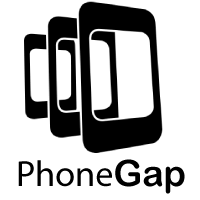- info@einnovention.us
- THIS SITE IS OWNED AND OPERATED BY MUHAMMAD AATIF NADEEM.
PhoneGap Development

Title: Exploring the World of PhoneGap Development: Building Cross-Platform Apps with Ease
In today's rapidly evolving digital landscape, mobile applications have become an integral part of our lives. Businesses and developers are constantly seeking ways to create powerful and engaging apps that cater to a wide audience. However, with multiple operating systems and devices in the market, the challenge of developing apps that work seamlessly across platforms can be daunting. This is where PhoneGap comes to the rescue, offering a versatile solution for cross-platform app development.
What is PhoneGap?
PhoneGap, now known as Apache Cordova, is an open-source mobile development framework that enables developers to create cross-platform apps using HTML, CSS, and JavaScript. Developed by Adobe, PhoneGap simplifies the process of building apps for iOS, Android, and other platforms by allowing developers to write code once and deploy it across multiple devices.
Advantages of PhoneGap Development:
- Cross-Platform Compatibility: One of the primary benefits of PhoneGap is its ability to create apps that run smoothly on various operating systems and devices, reducing the need for platform-specific development.
- Cost-Efficiency: Developing separate apps for different platforms can be costly and time-consuming. With PhoneGap, developers can create a single codebase, saving both time and money.
- Familiar Web Technologies: PhoneGap allows developers to use their existing knowledge of HTML, CSS, and JavaScript, making the learning curve smoother and accelerating development.
- Access to Device Features: PhoneGap provides access to native device features such as camera, GPS, accelerometer, and more, enabling developers to create feature-rich apps.
- Rapid Prototyping: The framework's rapid development cycle allows developers to quickly create prototypes and iterate on their app ideas.
Getting Started with PhoneGap:
- Installation: To begin, you'll need to install Node.js and Cordova. Cordova is the command-line tool used to manage PhoneGap projects. Install Cordova globally using the following command: npm install -g cordova.
- Creating a Project: Use Cordova to create a new project structure. For example, Cordova created MyApp.
- Platform Setup: Navigate to your project folder and add the platforms you want to target, such as iOS and Android: Cordova platform add IOS and Cordova platform add Android.
- Coding: Write your app's code using HTML, CSS, and JavaScript within the "www" directory of your project.
- Plugins: PhoneGap offers a wide range of plugins that provide access to native device functionality. You can add plugins using Cordova, such as Cordova plugin add .
- Testing: Use Cordova's built-in browser preview feature to test your app during development. For testing on actual devices, you'll need to deploy the app to a device or emulator.
- Building and Deployment: Once your app is ready, use Cordova to build it for the target platforms: Cordova builds IOS and Cordova builds android. Deploy the generated files to app stores or distribute them through other channels.
Best Practices for PhoneGap Development:
- Responsive Design: Design your app's interface to adapt to various screen sizes and orientations.
- Optimize Performance: Since PhoneGap apps run within a web view, optimizing performance is crucial. Minimize heavy animations and use hardware acceleration where possible.
- Offline Functionality: Utilize local storage and caching techniques to provide a seamless experience even when users are offline.
- Security: Apply best practices for web security to protect your app's data and user information.
- Regular Updates: Keep up with the latest versions of Cordova and plugins to ensure security patches and performance improvements.
Conclusion:
PhoneGap development offers an efficient and cost-effective way to create cross-platform mobile applications that cater to a diverse user base. By leveraging familiar web technologies and gaining access to native device features, developers can build robust and feature-rich apps that run seamlessly on various platforms. With its rapid development cycle and extensive plugin ecosystem, PhoneGap is a valuable tool for businesses and developers aiming to deliver engaging and functional apps to their audiences. So, whether you're a seasoned developer or just starting, exploring the world of PhoneGap development could be the key to unlocking a world of cross-platform possibilities.

